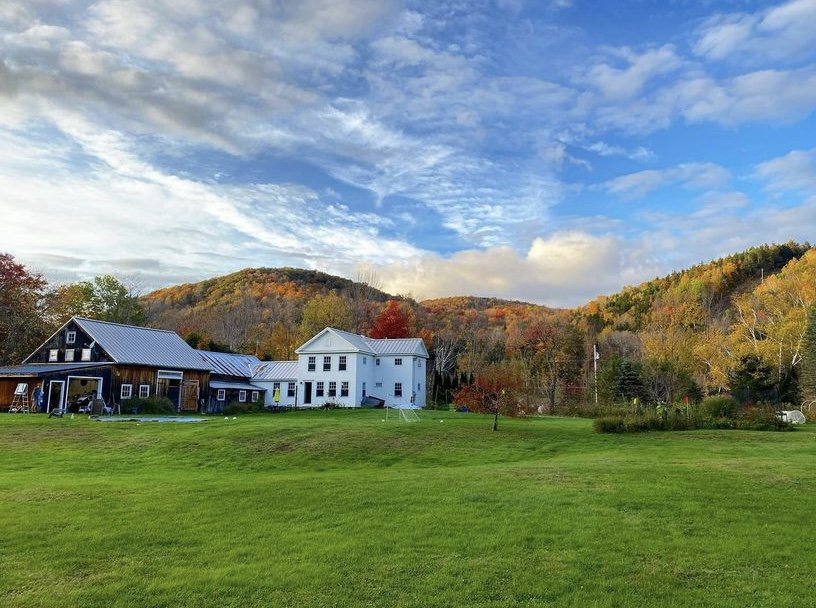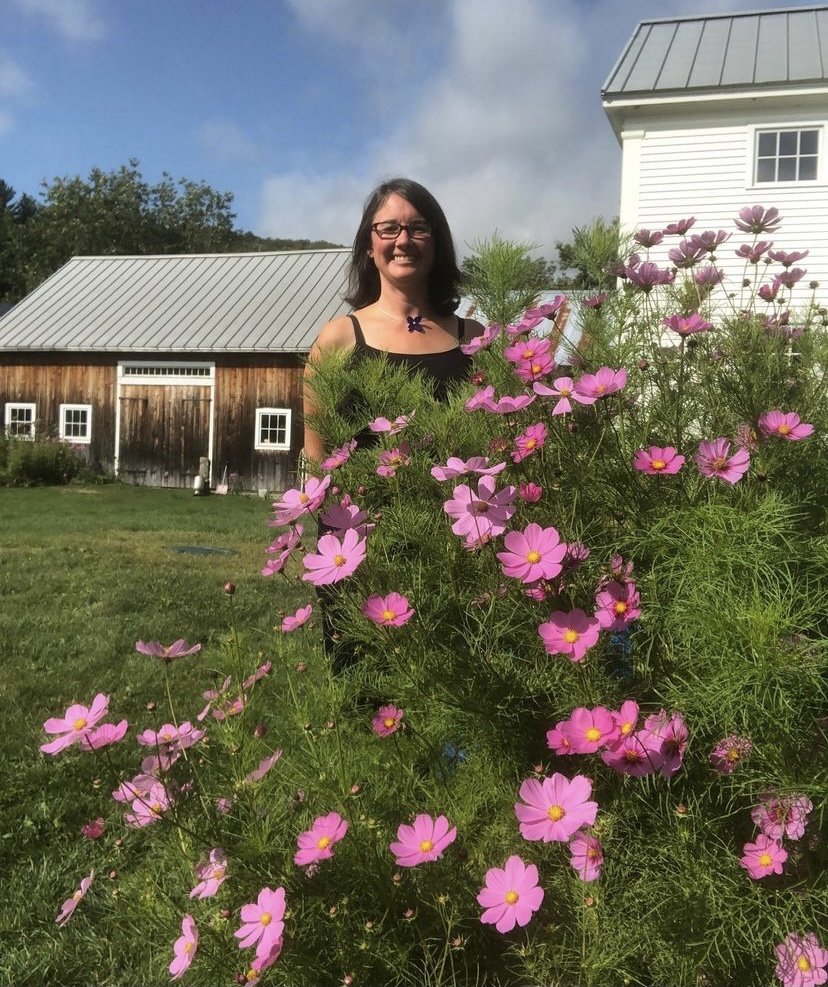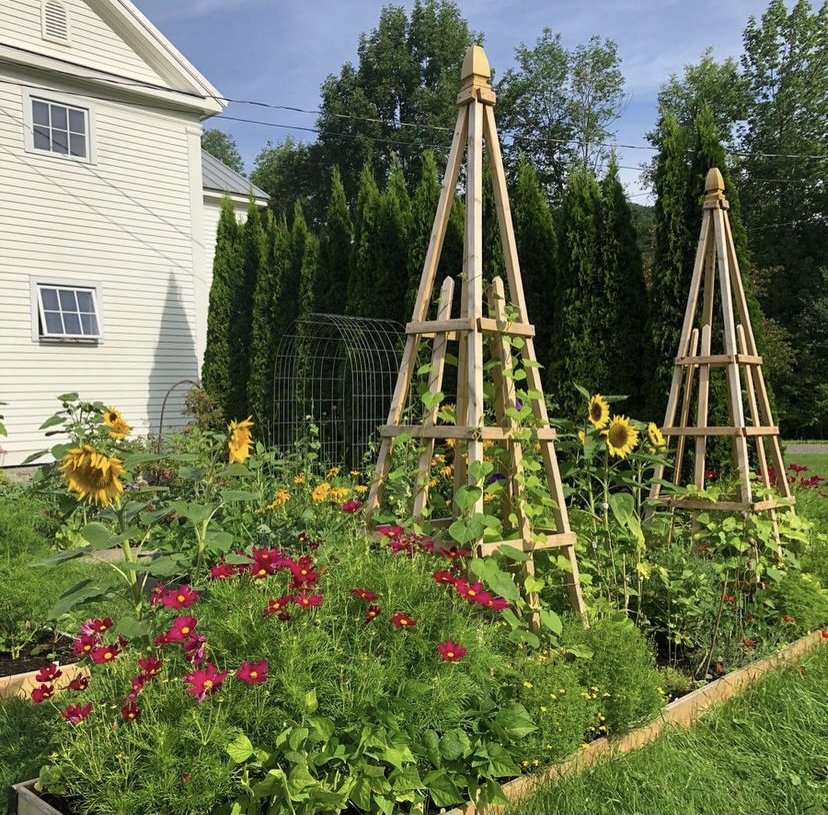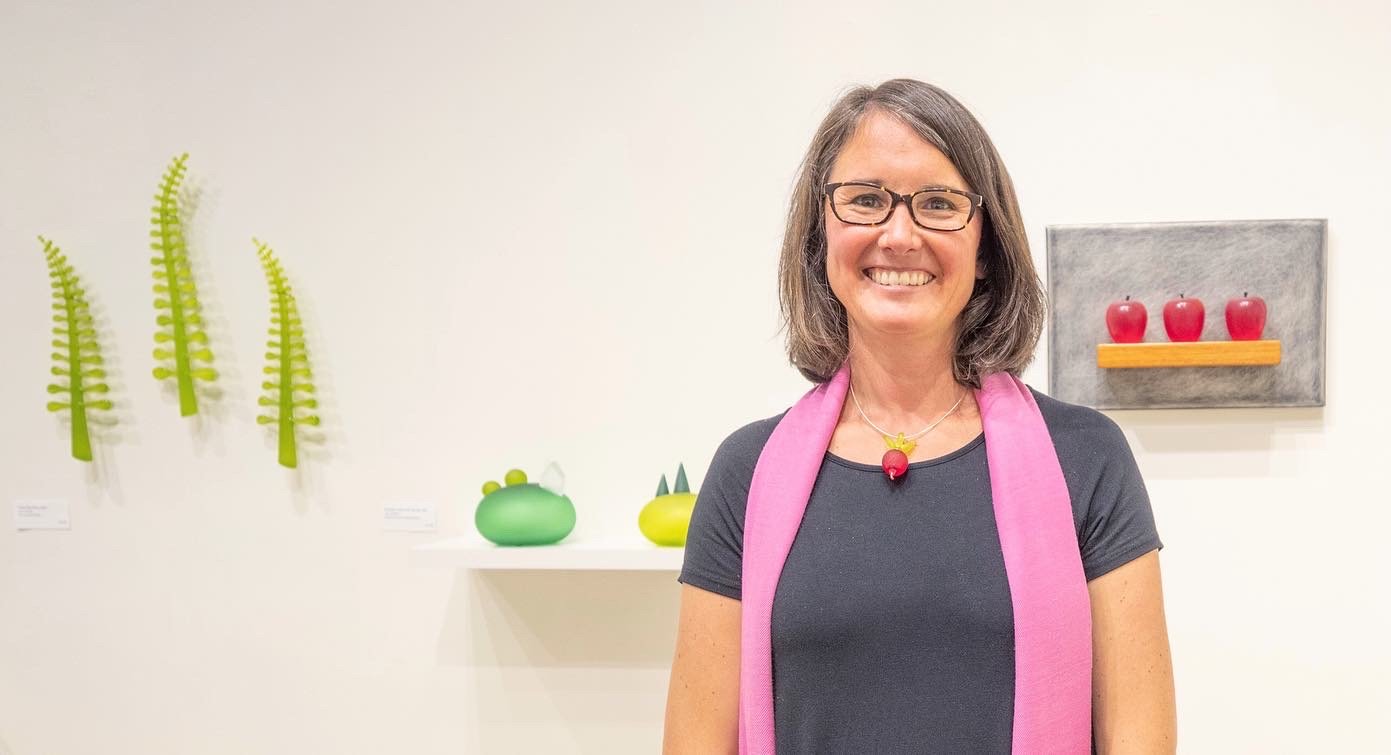A peaceful little oasis…
In a 1920s farmhouse nestled in the rolling hills of bucolic Vermont, with two active boys, three acres of land, and a thriving career as an artist to attend to, Jen Violette rarely has any spare time. She and her “really talented and handy” husband, John Gerding, are skilled doers who renovated the farmhouse themselves over the past 20 years. Violette first learned drawing and woodworking from her father (whose parents were artists) and sewing from her mother, then she studied glass and metal sculpture at Alfred University. John does metalwork, producing his own pieces as well as welding many of the steel bases for Violette’s glass sculptures. Next to the house, in a barn dating back to 1890 that was filled with junk and terribly drafty when they bought the property, the couple has built a studio for Jen, and next to that a workshop for John.
Even during the heart of the pandemic, when she was forced to hunker down and shift her daily rhythm, Violette still had more than enough to do. Her boys, Niko and Bennett, have kept her on her toes since they were babies. When school went remote in 2020, they were in 4th and 5th grade and she took time off from work to help them. Between their pool, their trampoline, their kayaks, and their sports, they all keep very busy. At the precipice of their yard at the foot of the hillside runs a little stream and together the family built a bridge for it out of scrap wood, introducing the boys to all manner of tools and drills. Violette loves to mountain bike, and the Catamount Trail picks up right at the end of her dirt road. During the worst of the pandemic, she took a lot of bike rides and walks in the woods with the dog, and sometimes the family would join and they’d all have a picnic at the lake.
Violette turned to her land, a regular source of inspiration and solace for her that took on an even greater importance these past 18 months. Her charming glass sculptures have long had as their muse the vegetables and perennials harvested from her garden. During the pandemic, she took the time to revamp this garden, adding three large, raised beds and sculpting two wooden obelisks for plants to climb. In a quiet little corner of the yard, where the boys would sometimes join to help, she escaped the uncertainty and chaos of spring 2020. When a year went by and a new spring arrived, it brought with it the rewards of having cleared the land and planted new seeds, and Violette was filled with appreciation for the marking of time and the beauty of nature. There is a symbiotic relationship between Violette’s life and work, her lively personality and attraction to the land made tangible in her unfussy but elegantly executed work in glass.
Violette rents glassblowing space from her friend Bob Dane in western Massachusetts, a short drive from her home in southern Vermont. She creates the glass elements of her sumptuous and earthy sculptures there, sometimes working with an assistant on larger pieces but making most of the components herself. All the metal and woodworking are done in her home studio. She apprenticed with Dane for a year, studied with Lino Tagliapietra at Pilchuck and Haystack in the 1990s, and had Dante Marioni as an early teacher. To this day, she is inspired by watching them work, by their habits, how they work with the glass, how they push the limits of the material. She was very fortunate to also have had many other well-known glass mentors, including Pino Signoretto, William Morris, Martin Janecky, Karen Willenbrink-Johnsen, and Dick Marquis. When the pandemic first hit, she was thankful for Dane’s safe space to go and continue to blow glass, but by early April the shop shut down and did not fire up again until the fall. Because Violette’s process is relatively solitary for a glass artist, and because she had a stock of pre-made glass fruits and vegetables, she was able for a time to continue to produce work.
As an artist, Violette looked at the world around her—the depressing news, the global health crisis, and the financial toll of it all—and thought about ways her work could help people weather the storm. She made some happy items—potted cacti, sprouts, and aloe—in the hopes of bringing joy to people. Her work combines playful and colorful exuberance with the reassuring comfort of the organic. Her petite plants are cheery green sprouts emerging from smooth ebony pots, and they are a perfect little antidote to set on a windowsill and capture the light. When she was able to blow glass again last fall and winter, she created a series of imaginary summer houses, balancing geometric little dwellings and stylized trees on pillowy bubbles of grass. For those of us who don’t live in the foothills of the Green Mountains, or otherwise have a peaceful little oasis to which we can escape, Violette’s lighthearted and bright landscapes are a fine substitute.
In the years leading up to 2020, Violette had been busy traveling for conferences, and was a guest artist and teacher at Corning. In 2018, in their large amphitheater and with the rare advantage of assistants with extra hands, Violette built a giant potted cactus which she thinks inspired the smaller versions she made during the pandemic. In 2019, she was guest artist at SOFA Chicago and used the Corning Museum’s portable glass studio to blow a potted aloe plant. Working with the large Corning team gave her the opportunity to indulge in her dreams of scaling up, testing the bounds of her aesthetic. But in general, Violette thrives on both the physical and mental challenge of working alone. While she misses the travel and camaraderie that come along with being a glass artist (highlighted in events such as the summer demonstrations at Schantz Galleries), she knows these occasions will return in time.
One of the Awakening series by Jen Violette, purchased by the Sandwich Museum.
In the meantime, Violette is back in the glassblowing studio working on, among other things, an aptly titled series called Awakening. In these works, the onyx-black glass of her small potted plants is formed into smooth rock-like formations, which give life to jaunty green shoots. This past summer, she exhibited one of these works in an exhibition at the Sandwich Museum entitled In Her Voice: Influential Women in Glass. The piece was subsequently purchased by the museum. She has been busy with several private commissions, just finished several wall sculptures for Schantz Galleries, recently participated in Glass-tastic at the Brattleboro Art Museum, and is still harvesting carrots and kale from this year’s garden, which you never know might be the inspiration for her next work of art.
Available Works by the Artist…
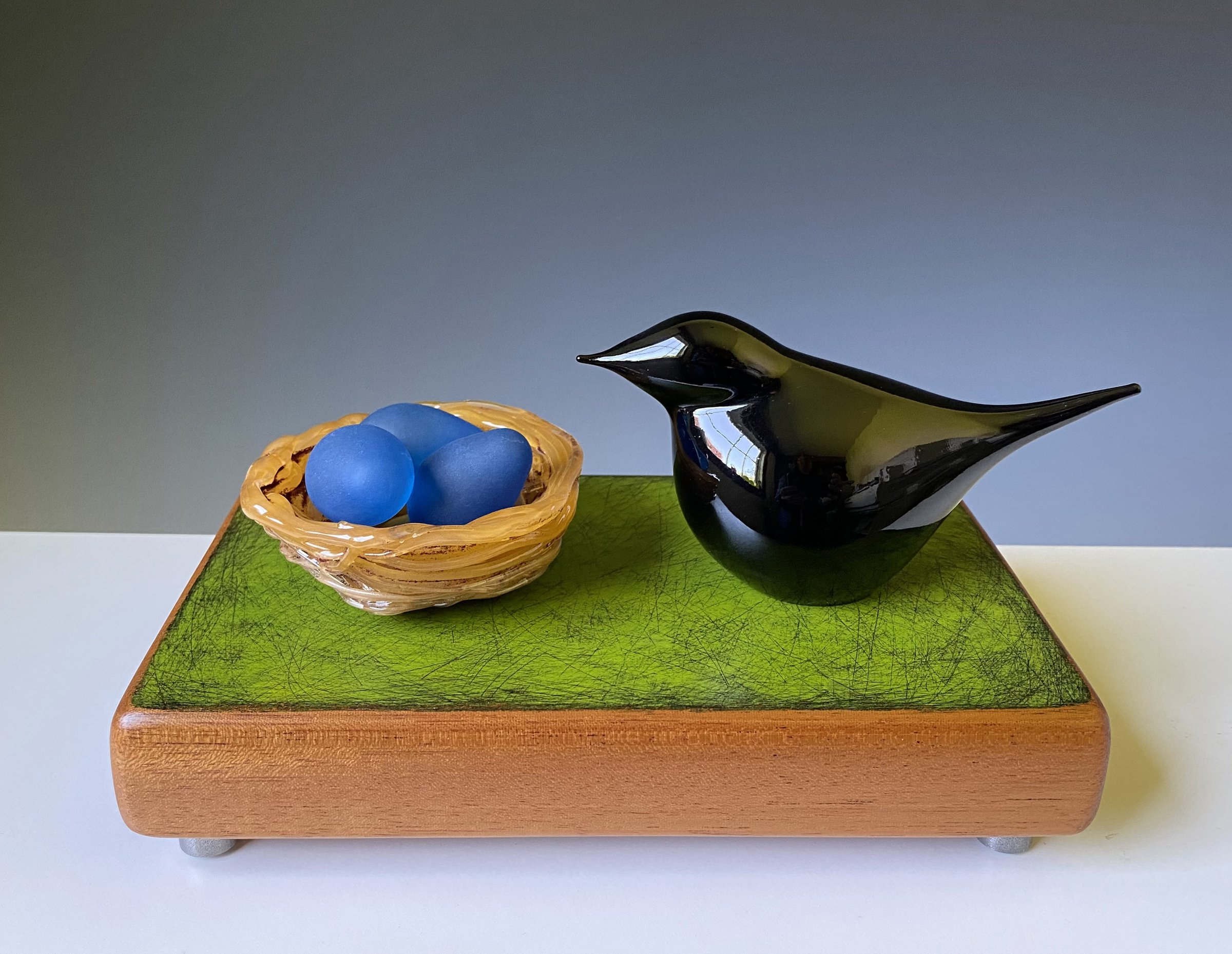
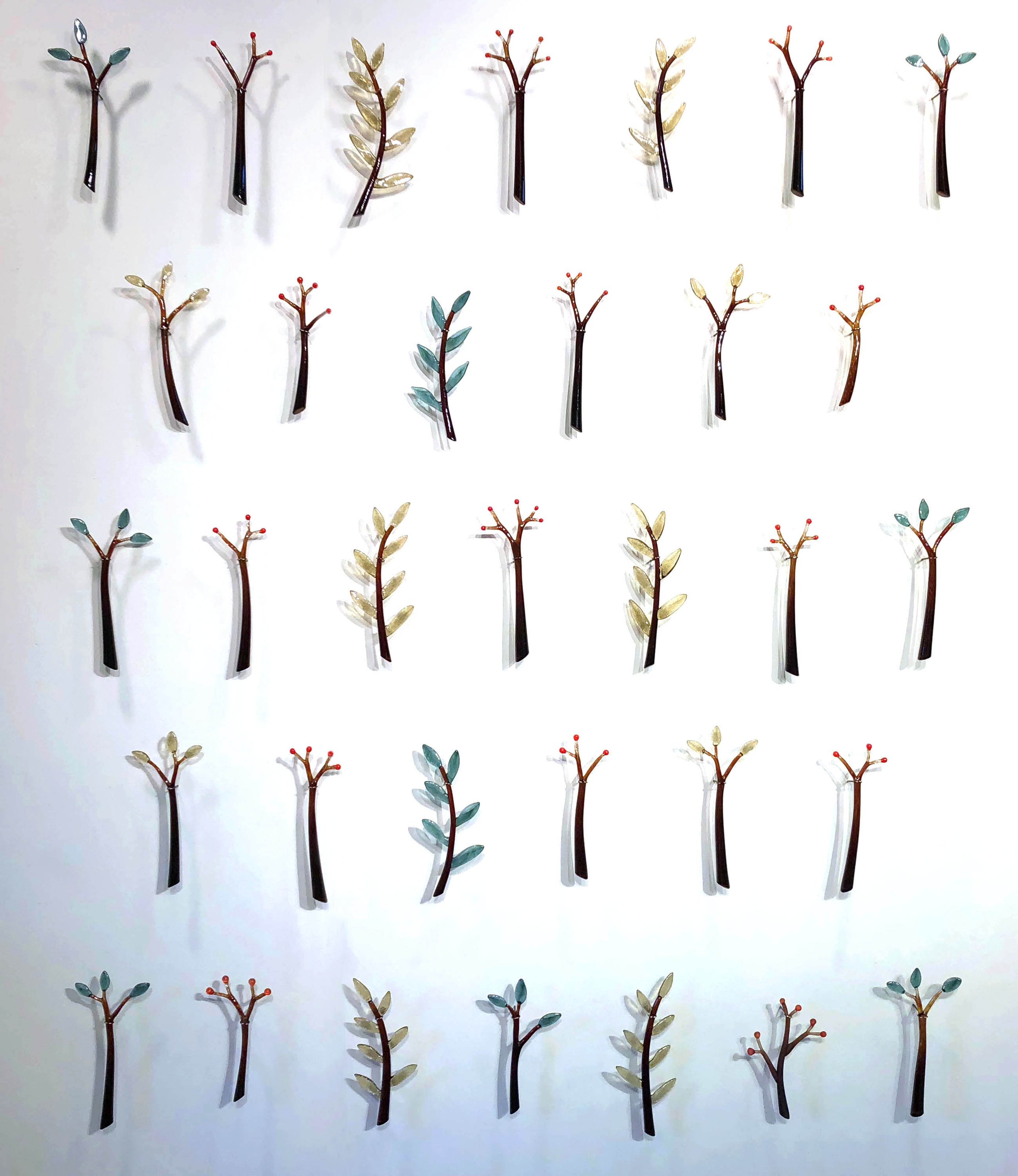
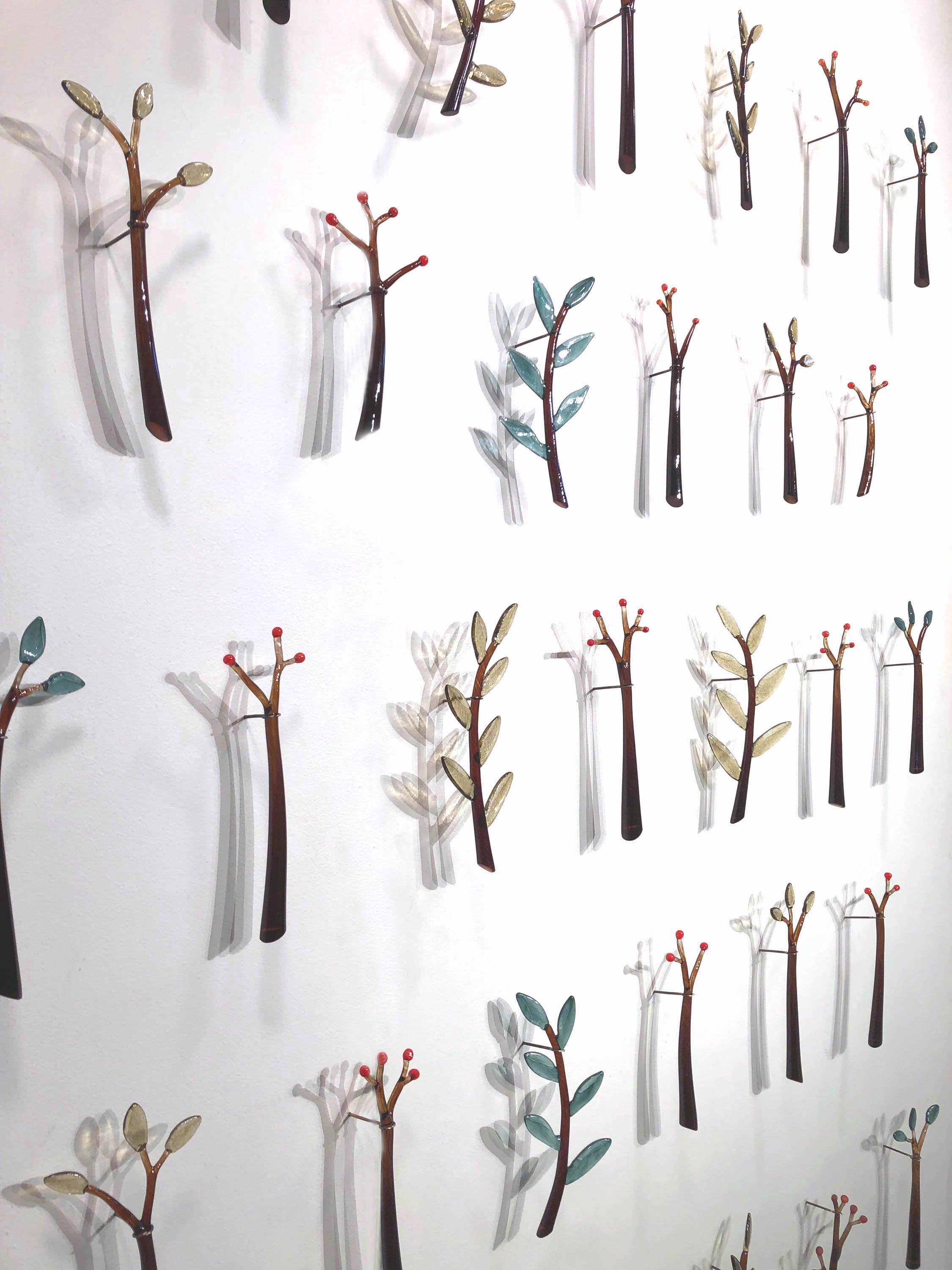
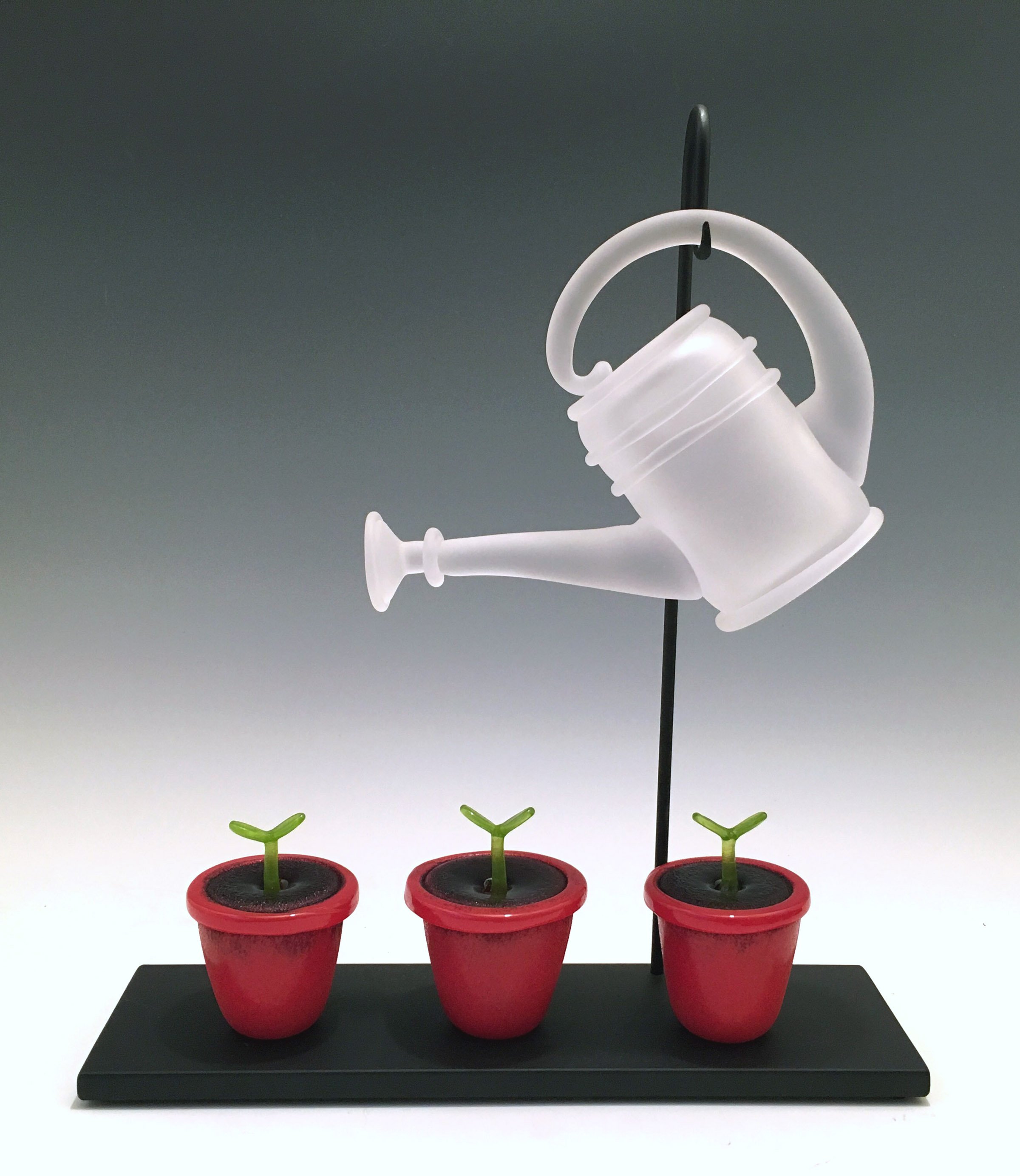
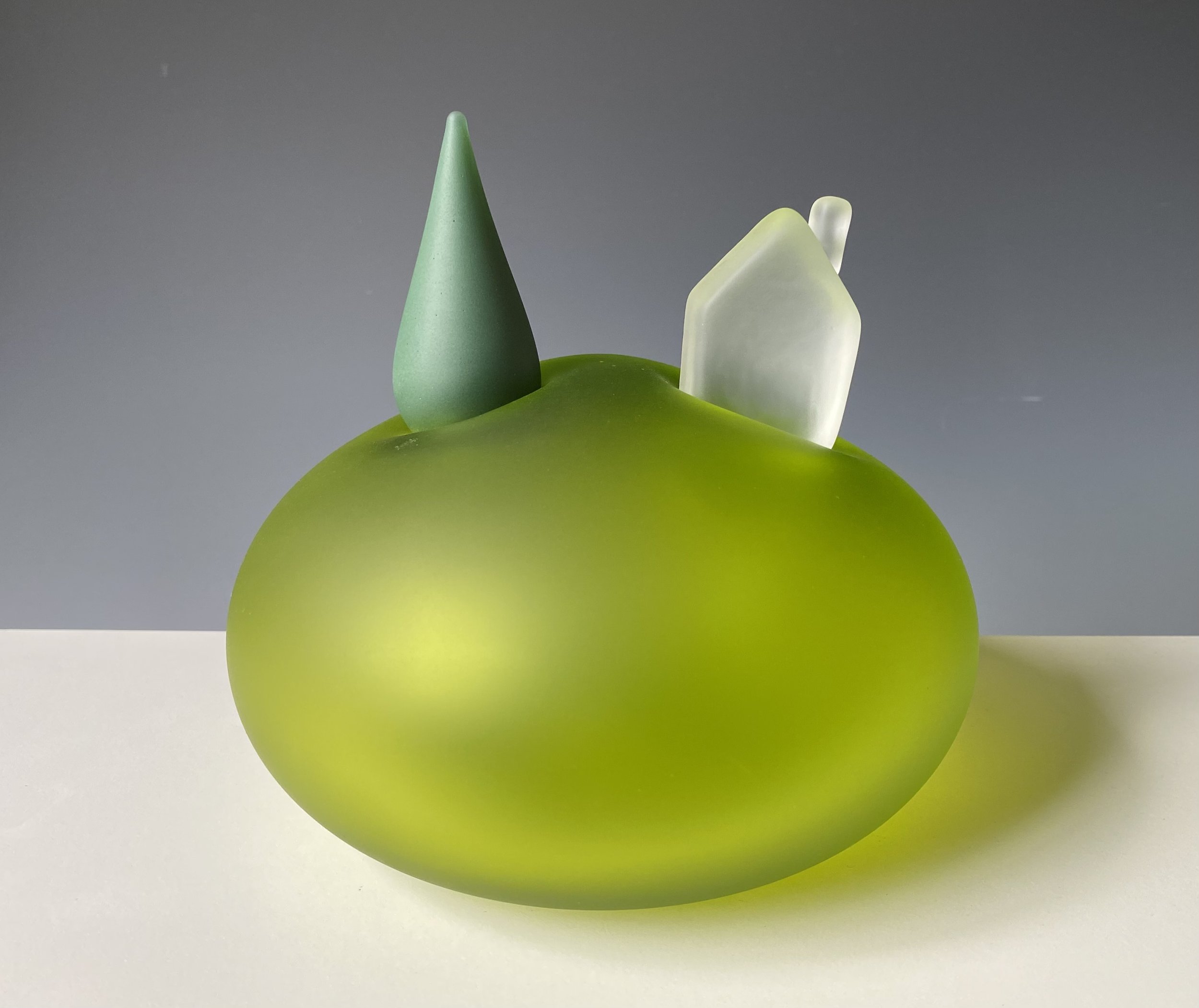
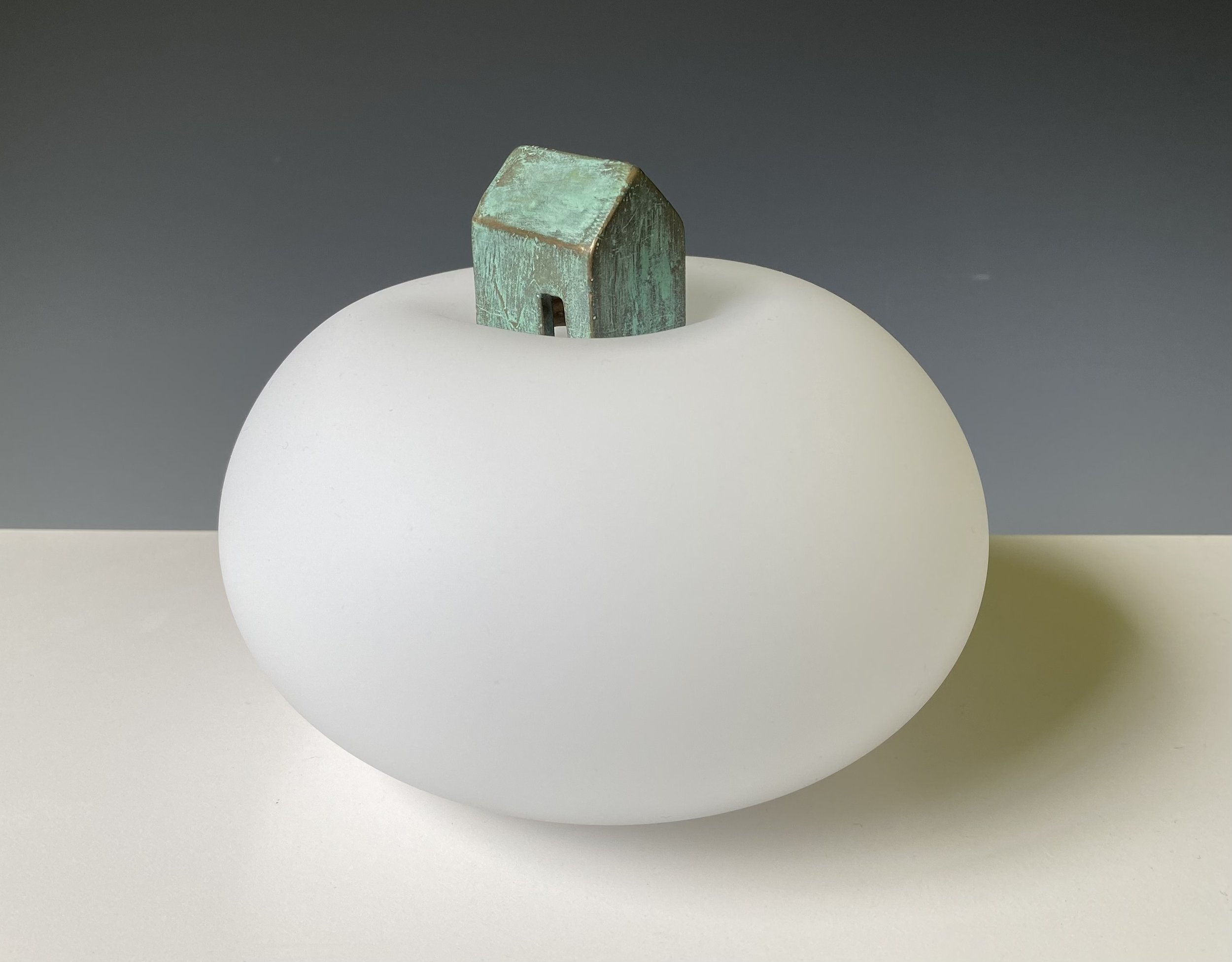
About the Artist…
Jen Violette's passion for creating art began in early childhood. She learned basic drawing and woodworking skills from her father & sewing skills from her mother. Her paternal grandparents earned their living as studio artists at their home in Maine, and she was always inspired by their work and lifestyle. After graduating from high school in 1990, she decided to study art at Alfred University and received her BFA with honors from Alfred in 1994. She has studied at the Rhode Island School of Design, Pilchuck Glass School, Haystack Mountain School of Crafts, The Studio at the Corning Museum of Glass and Penland School of Crafts. Her teachers include Lino Tagliapietra, William Morris, Dante Marioni, Richard Marquis, Pino Signoretto, Randy Walker and Karen Willenbrink-Johnsen.
Jen and her husband John Gerding live on a small farm in Wilmington, Vermont with their two young sons. Living in an old farmhouse with connected barns for her studio greatly inspires her daily thoughts and sketches. Jen is an avid gardener and draws great inspiration for her pieces from her vegetable & perennial gardens on their land.
Jen has won numerous awards for her glass and exhibits, and her unique mixed-media sculptures in many fine art galleries nationwide. Her work is included in numerous private collections throughout the world.


